"Rahneshan" brought innovative ideas to businesses; Sattari: Young thinkers learn how to thrive on knowledge-based and creative businesses and win the battle against the oil economy
The closing ceremony of the first issue-oriented events of the National Elites Foundation was held in the presence of the Vice President for Science and Technology and the appreciation of the best.
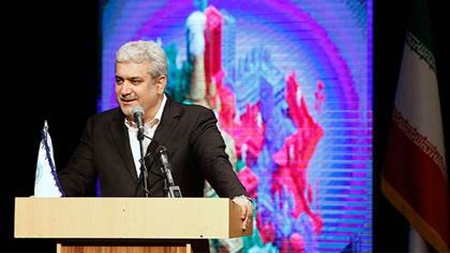
The "Rahneshan" event, as one of the biggest problem-oriented events under the Shahid Babaei project of the National Elites Foundation, with the support of the Vice Presidency of Science and Technology and the National Elites Foundation, reached the stage of recognizing the winners.
The competition was hosted by 38 knowledge-based companies and 56 projects in 5 areas of biotechnology, transportation, water and environment, energy and intelligence, to identify talented individuals and teams, students and technologists to empower them to solve the problems and needs of the country's industry.
While defining strategic projects, the companies raised their needs and continued their activities for 5 months, which started in October and continued until March 31 of this year. These projects were implemented with the welcome of 4510 participants.
After 7 stages of evaluation, and holding various training workshops, team building, and coaching sessions to advance the projects, the best ones reached the final stage, which led to the identification of about 600 top talent in the form of several dozen successful student teams.
Sorena Sattari, Vice President of Science and Technology, said at the ceremony that holding such events will acquaint the elite and motivated young community with the way of creating innovative businesses. The knowledge-based and creative businesses started by the young professionals are started so that at present the best ecological, creative, and startup ecosystem in the region is Iran; Because we tried to promote the foundation of the knowledge-based economy, that is, the culture and context of innovation in the country, by creating a favorable environment.
Sattari spoke about the mission of the country's education and research sector in cultural transformation and the upliftment of society and emphasized: Universities whose income is provided from tuition fees to the government budget, should play a role by recognizing their mission again and changing the dominant culture to help the industry.
The head of the National Elites Foundation called the efficient and quality product the result of private sector investment in research, saying the government could not make cars, vaccines, and other efficient products. Rather, it should merely facilitate the research process and pave the way for private sector investment in pure ideas.
Sattari considered the facilitation of the connection between innovative ideas and private sector investors as the basis of the Vice President for Science and Technology in recent years and said: "Relying on this approach, today more than 10,000 startups and more than 5,800 knowledge-based companies in GDP We achieved national employment and development.
He said that some knowledge-based companies and Iranian-made products are unique not only in the region but also in competition with the most advanced countries in the world, adding that the country's knowledge-based companies in the fields of nanotechnology, stem cells, biotechnology, and many other fields. The success story of knowledge-based businesses is often similar, and the owners of all those businesses have succeeded by relying on the presence of a private investor presence.
The Vice President of Science and Technology, stating that today's struggle is between the activists of innovation and the monopolies of crude and oil-based culture, said: Innovation is God's greatest gift to mankind.
He pointed out that industry finds its true meaning with innovation and the presence of the university in this field, adding: "A university is successful in highlighting its role in the industry and earn a significant part of its revenues from industry-related contracts." Such a university is successful if it can transform the world around it.
Sattari called Sharif Innovation District a successful example of the impact for universities on society and said that the fact that more than 500 knowledge-based and creative businesses have been formed around the university environment shows the effectiveness of the university on its environment.
Sattari, noting that the export of biotechnology and recombinant drugs by knowledge-based companies is a successful example of the obsolescence of the culture of selling raw materials, added: "These companies started from scratch and today the identity of the country's economy from source-based and importer economy They are transformed into an innovative, creative and value-creating economy.
Emphasizing that in the tortuous way of fighting against the prevailing traditional culture, it is the knowledge-based and creative companies that take the lead, he said: In this fight, innovative businesses have the upper hand and all innovation ecology activists must empathize. And let us continue this struggle together to free the country from the shackles of oil-based culture.
Communication and Information Center in the Vice Presidency of Science and Technology



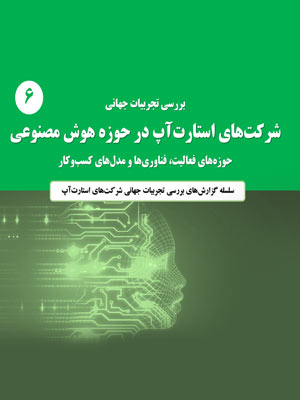


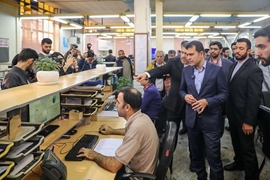
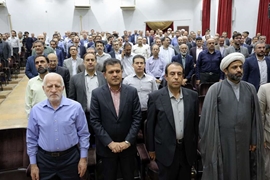
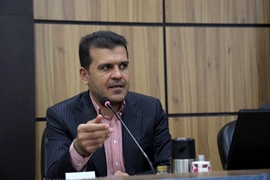
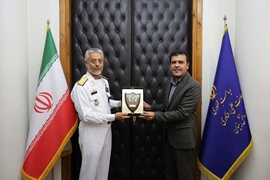

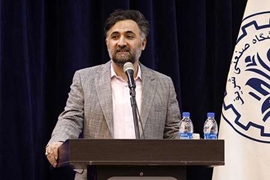
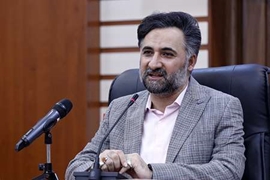
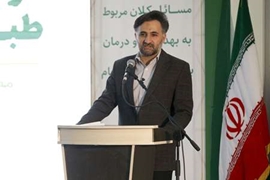
comment